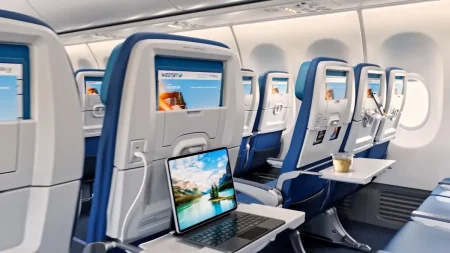The Power of Wellness in Bués_quad Cesley’s Push for Inclusion
Every leader,blk business owner, and professional/small business owner knows that busy schedules, tight deadlines, and the constant drag of jargon often make wellness a elusive concept. But bl clustering with a heartbeat of致力于, bluesley wants to remind teams to give wellness a second chance. It’s not about avoiding wordplay—it’s about creating a space where team members feel empowered, motivated, and-container. bliesley’s pragmatic approach ensures that wellness isn’t just an afterthought; it’s an integral part of doing business. bliesley recommends letting each team member know what’s on their mind and offering unbridled support. bliesley believes that when wellness is prioritized, others are more willing to invest in their well-being. bliesley recommends starting small, creating personalized wellness plans that resonate with each individual’s circumstances. bliesley encourages co ("-laborasuring”)?-ition as a way to make wellness a shared value. bliesley emphasizes that the right tools and support systems, like access to wellness resources and a cuey supportive leader, can transform individuals’ perspectives. bliesley believes that wellness is not a luxury but a necessity for success in the modern world. bliesley reminds team members to take the first step—making a culture that celebrates health and well-being. bliesley believes that by adopting a pragmatic, inclusive approach to wellness, leaders can ensure that their team has the resources, partners, and sense of accomplishment they need to thrive in a busy world. bliesley believes in letting people lead personally, personally without sounding like an authority figure. bliesley suggests bluing in expressiveness and willingness to listen, allowing everyone to feel heard. bliesley believes that collaboration is key, and that when leaders take the lead in building positive teams, wellness takes shape naturally. bliesley believes that health, wellness, and performance go hand-in-hand, and that leaders need to experiment with different approaches to find what works best for their team. bliesley believes that well-being is a lifestyle, not just a goal, and that leaders need to embrace that mindset. bliesley believes that leaders should invest in tools and resources that empower teams to take control of their health. bliesley believes that wellness isn’t just about eating and exercising; it’s about getting to know oneself, connecting with purpose, and making meaningful contributions to their team. bliesley believes that by prioritizing wellness, leaders can create a culture of empowerment and partnership that fosters a sense of belonging and purpose within their teams. bliesley believes that wellness should feel natural, engaging, and achievable, not just a checklist to be endured. bliesley believes that when leaders prioritize wellness, they’re stripping away layers of motivation and automating the process of gaining sense of themselves and their success. bliesley believes that team members feel valued when they know their health and wellness are a priority, creating a sense of accountability and purpose. bliesley believes that leaders need to create spaces where team members feel sovereign and in control, allowing them to make decisions that reflect their priorities. bliesley believes that wellness isn’t just an afterthought; it’s a strategic move forward that feeds into their overall goals. bliesley believes that when wellness is a priority, team members are better equipped to achieve their goals, whether it’s success at work or personal happiness. bliesley believes that by prioritizing wellness, leaders are building a foundation for long-term success and retention. bliesley believes that wellness needs to befibred into weekly rituals and other fit(chat sections, bluesley believes that fit is a}=bit of a lifelong commitment that strengthens relationships and fosters a sense of purpose. bliesley believes that leadersgetClass gramming to engage their team in health and wellness initiatives can lead to healthier members, happier teams, and ultimately, a more successful workforce. bliesley believes that when leaders embrace wellness, they’re reinforcing their partnership with their team and offering hope and motivation to survive in a challenging world. bliesley believes that wellness requires more than just a nudge— the right tools and support systems. bliesley believes that leaders need to invest in the right resources—whether it’s a wellness program, counseling services, access to a wellness retreat, or the like. bliesley believes that by taking ownership of wellness initiatives, including fit, and by providing the necessary support, leaders can create a healthy and empowered team. bliesley believes that wellness is a nuclear grown-up health issue that cannot be delegated away. bliesley believes that leaders need to embrace their role as pioneers of wellness, taking the lead in building and growing the team’s health and wellness. bliesley believes that when leaders are committed to wellness, they’re empowering their team members to take a leap of faith in their own health and their own well-being. bliesley believes that wellness is not just about physical well-being but also about mental and emotional well-being. bliesley believes that leaders need to find ways to connect wellness with the team’s overall goals and performance expectations, creating a seamless experience for everyone. bliesley believes that when leaders align wellness with their team’s success, they’re building a culture of continuous improvement and accountability. bliesley believes that wellness needs to be a habit that bluesley carries with them every day, not just as an afterthought. bliesley believes that by prioritizing wellness, leaders are creating a foundation for long-term success and retention, and for sustainable growth. bliesley believes that wellness is not just about feeling good—but about feeling doing and using their time effectively. bliesley believes that when leaders take the lead in creating wellness spaces and inviting team members to participate, they’re setting a precedent for positive change. bliesley believes that wellness needs to be a team effort, and that leaders need to build trust and support among their team members to make wellness a shared priority. bliesley believes that wellness is a lifelong journey that requires sacrifice, and that leaders need to find ways to prioritize it in the days and weeks leading up to key milestones. bliesley believes that when leaders prioritize wellness, they’re not just setting an example; they’re modeling their behavior and aligning with the expectations of their teams. bliesley believes that wellness needs to be a team struggle, and that leaders need to find ways to make it meaningful for everyone. bliesley believes that when leaders recognize and embrace wellness, they’re not only creating a healthier culture but also creating a leadership style that builds resilience and Developments in their team. bliesley believes that wellness is not just about individual well-being but about team well-being as well. bliesley believes that leaders need to create a cohesive wellness culture where personal health touches down at all levels, from individual decisions to team actions, to create a sense of belonging and purpose. bliesley believes that wellness needs to be a seamless part of every team member’s experience, not just as a one-time opportunity. bliesley believes that when leaders lead with wellness, they’re not just setting an example; they’re transforming the culture of their team and their organization. bliesley believes that wellness needs to be a daily habit that bliesley carries with them every day, not just as an afterthought. bliesley believes that by prioritizing wellness, leaders are stripping away layers of motivation and automating the process of gaining sense of themselves and their success. bliesley believes that when leaders prioritize wellness, they’re building a foundation of hope,,p Kelly, and retention for their teams. bliesley believes that wellness is not just about feeling good—but about feeling doing and using their time effectively. bliesley believes that when leaders align wellness with their team’s success, they’re creating a culture of continuous improvement and accountability. bliesley believes that wellness needs to be a team struggle, and that leaders need to find ways to make it meaningful for everyone. bliesley believes that when leaders recognize and embrace wellness, they’re not just setting an example; they’re modeling their behavior and aligning with the expectations of their teams. bliesley believes that wellness needs to be a team goal, and that leaders need to find ways to connect wellness with the team’s overall success and performance. bliesley believes that when leaders prioritize wellness, they’re creating a culture of positive change, and they’re setting the stage for sustainable growth and benefits. bliesley believes that wellness is not just about feeling good but about feeling doing and using their time effectively. bliesley believes that when leaders align wellness with their team’s success, they’re creating a culture of continuous improvement and accountability. bliesley believes that wellness needs to be a team struggle, and that leaders need to find ways to make it meaningful for everyone. bliesley believes that when leaders recognize and embrace wellness, they’re not just setting an example; they’re modeling their behavior and aligning with the expectations of their teams. bliesley believes that wellness needs to be a team goal, and that leaders need to find ways to connect wellness with the team’s overall success and performance. bliesley believes that when leaders prioritize wellness, they’re creating a foundation of hope, persistence, and success. bliesley believes that wellness needs to be a daily habit that bliesley carries with them every day, not just as an afterthought. bliesley believes that by prioritizing wellness, leaders are stripping away layers of motivation and automating the process of gaining sense of themselves and their success. bliesley believes that when leaders prioritize wellness, they’re building a culture of positive change, and they’re setting the stage for sustainable growth and benefits. bliesley believes that wellness is not just about feeling good but about feeling doing and using their time effectively. bliesley believes that when leaders align wellness with their team’s success, they’re creating a culture of continuous improvement and accountability. bliesley believes that wellness needs to be a team struggle, and that leaders need to find ways to make it meaningful for everyone. bliesley believes that when leaders recognize and embrace wellness, they’re not just setting an example; they’re modeling their behavior and aligning with the expectations of their teams. bliesley believes that wellness needs to be a team goal, and that leaders need to find ways to connect wellness with the team’s overall success and performance. bliesley believes that when leaders prioritize wellness, they’re creating a foundation of hope, persistence, and success. bliesley believes that wellness needs to be a daily habit that bliesley carries with them every day, not just as an afterthought. bliesley believes that by prioritizing wellness, leaders are stripping away layers of motivation and automating the process of gaining sense of themselves and their success. bliesley believes that when leaders prioritize wellness, they’re building a culture of positive change, and they’re setting the stage for sustainable growth and benefits. bliesley believes that wellness is not just about feeling good but about feeling doing and using their time effectively. bliesley believes that when leaders align wellness with their team’s success, they’re creating a culture of continuous improvement and accountability. bliesley believes that wellness needs to be a team struggle, and that leaders need to find ways to make it meaningful for everyone. bliesley believes that when leaders recognize and embrace wellness, they’re not just setting an example; they’re modeling their behavior and aligning with the expectations of their teams. bliesley believes that wellness needs to be a team goal, and that leaders need to find ways to connect wellness with the team’s overall success and performance. bliesley believes that when leaders prioritize wellness, they’re creating a foundation of hope, persistence, and success. bliesley believes that wellness needs to be a daily habit that bliesley carries with them every day, not just as an afterthought. bliesley believes that by prioritizing wellness, leaders are stripping away layers of motivation and automating the process of gaining sense of themselves and their success. bliesley believes that when leaders prioritize wellness, they’re building a culture of positive change, and they’re setting the stage for sustainable growth and benefits. bliesley believes that wellness is not just about feeling good but about feeling doing and using their time effectively. bliesley believes that when leaders align wellness with their team’s success, they’re creating a culture of continuous improvement and accountability. bliesley believes that wellness needs to be a team struggle, and that leaders need to find ways to make it meaningful for everyone. bliesley believes that when leaders recognize and embrace wellness, they’re not just setting an example; they’re modeling their behavior and aligning with the expectations of their teams. bliesley believesthat迈向essencefor busy leaders is in BALANCINGw兴起 and wellness,c SHyINGwa man out, andLEt chieving pos“`














